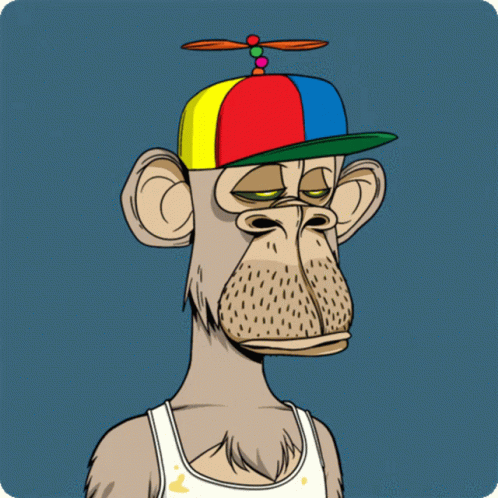What's The Big Deal?
So, NFTs and the Blockchain, what's the big deal? That really is a great question. In short, a NFT is a unique identifier for a certain piece of digital media that is easily traceable to a certain person through the blockchain, which serves as a digital ledger to prove ownership. Blockchain and NFTs are revolutionizing the digital world, creating unprecedented opportunities for ownership, transparency, and decentralization. With blockchain, transactions are secure, immutable, and trustless, eliminating the need for middlemen and reducing fraud. NFTs, in particular, have empowered artists, musicians, and creators by giving them direct access to their audiences and ensuring they receive fair compensation for their work. Digital ownership has never been more verifiable, and industries ranging from gaming to real estate are being transformed by the ability to tokenize assets. The rise of smart contracts and decentralized applications further cements blockchain as the foundation of a new, more equitable internet, where users regain control over their data and assets.
Faults of the System
Unfortunately, there are potential downsides to the NFT and Blockchain system. Some say that Blockchain and NFTs are overhyped, and really aren't useful in the art world. Additionally, while Blockchain technology is frequently touted as decentralized and secure, is often inefficient, requiring massive amounts of energy to maintain proof-of-work networks. It requires major computing power and cooling efforts in order to maintain the proof of ownership. If there is no wi-fi, good luck playing with your NFT.
Unfortunately, sometimes rather than empowering artists, they have become a vehicle for artificial scarcity, pump-and-dump schemes, and market manipulation, with countless projects vanishing overnight and leaving buyers with worthless assets. I myself have friends who have spent hundreds of dollars on NFTs, only for them to regret that purchase later, as they realize that their one of one AI generated image of a clown eating a hippopotamus is only worth what someone else will pay for it, which sometimes isn't much.
The Role of Liquidity
One huge downside to NFTs is the lack of liquidity. The current US financial system, while very imperfect, happens to do a good job at being liquid. The dollar bill is very fungible. Anything that is worth a dollar, can be purchased for a dollar. All dollars are essentially the same, and can buy roughly the same things. There is a beautiful simplicity in this system. We have chosen as a society to establish a common currency in order to make transactions more simple. This has led to a market system in which the spread of information, costs, and prices are fairly communicative. When the gas station on the corner raises prices by $0.10, within minutes the station across from that one has also raised prices. Within an hour, most of the stations in the city have all leveled to the same price.
It is not only gas stations that take advantage of the this flow of information that leads to standardization. The entire stock market runs of of essentially the same principle. People generally know information about different stocks, so they are able to use the common dollar to purchase something like an exchange traded fund. If at any point in the future they need to sell that ETF, the market is liquid, and within seconds you can get an exact quote for the exact amount you will receive for that ETF you bought.
NFTs do not benefit from this same principle. While yes, the owner of a NFT does happen to be that sole owner for that thing, values for something like an NFT are almost completely subjective. While art isn't the only use case for NFTs, it is a large one. Digital doodads are much more volatile, and can be much harder to sell if you find yourself in need. There is no gold standard for NFTs (or the US dollar either in this day and age, but that is a different issue). Essentially the potential issue is that most people don't have the extra cash in order to spend money on something as risky as a NFT. Sure, there are always random blockchain type things that happen to be super valuable and skyrocket in value, but it is almost exclusively speculative, which I take issue with.
Conclusion
I honestly do like a lot of the aspects that come from NFTs and the Blockchain. Being able to establish guaranteed ownership is great, as I believe that ownership is essential to any society. Additionally, I love the idea that everything is decentralized. However, for the average person that are a hard sell. Most people don't have the time, energy, and money to throw into digital ownership. I certainly don't have time in my life to spend in a decentralized digital land buying NFT items that I can show off in my metaverse. I am busy going to school and working my rear end off so I can afford to live, much less buy a NFT worth more than some people's houses.
